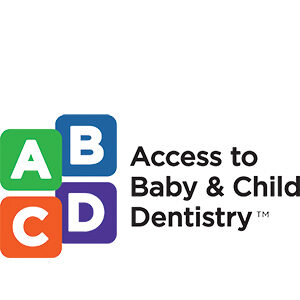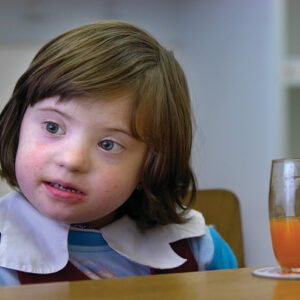Benefits
The ESIT program provides many benefits for enrolled children and their families. Parents can expect that their child will:
- Have an assigned FRC
- Be assessed in all areas, including vision and hearing
- Begin receiving services within 30 days after the initiation of the IFSP
- Have an opportunity to develop positive social-emotional skills and relationships
- Acquire knowledge and skills including language and communication
- Learn and use appropriate behaviors to meet their needs
- Learn self-help skills appropriate for their age
Make progress and receive support that will enhance their development
Cost to Families
What does the early intervention program cost? There is no way to know upfront costs. Work with your provider agency to determine costs. Provider agencies will work with you and your insurance if applicable.
Financial hardship support is available. You can always talk with your IFSP team if needed.
Services that are at no cost include the following:
- Child find (outreach)
- Evaluation and assessments
- Service coordination
- Individual Family Service Plan (IFSP)
- Family rights
- Transitions
No family will be denied services based on the inability to pay insurance co-pays coinsurance, or deductibles. Enrolled families can work with their IFSP team to find options and support.
Natural Environment

The ESIT program is invested in supporting your child’s success while in the program and as they transition out of the program at age 3. A cornerstone of ESIT’s process is ensuring that development therapies take place in your child’s natural environment, such as at your home, child care setting, or out in the community.*
- Support families in promoting their children’s development, learning, and participation in family and community life
- Emphasize the abilities of children, families, and care providers during everyday activities, rather than teaching skills out of context
- Focus on function and socialization with a potential indirect benefit of raising awareness of disability, empathy, and promoting friendships
- Promote learning in the same locations where the child will use the new skills
- Enable families and therapists to identify barriers and factors that may affect development in the typical setting in which the child is expected to use this skill
- Enable children to learn by modeling siblings, peers, and other people around them
- Provide children with opportunities to practice skills throughout their day
- Strengthen and develop lifelong natural supports for children and families
- Recognize family members and care providers as the primary influence for nurturing growth, development, and learning
*Natural environments are the expected location of early intervention service delivery in the law (Part C of the Individuals with Disabilities Education Act).
Transition
Nine months before your child’s early intervention services end when they turn 3, ESIT and partner agency staff work to ensure that your child is set up for success with continued support from other school or community-based programs. Here are some important things to know about this process:
- Transition begins at 27 months with assistance from your FRC
- Your child may be connected to special instruction services at school districts for Part B services if eligible
- You and your child will be connected to community-based developmental services such as preschool, play groups, Head Start, and ECEAP
- Read Transition: The Next Step - What Happens When My Child Turns Three? to learn more
Parental Rights
This program has safeguards to protect your rights and your child’s. Families that disagree with any part of their child's care should work with their IFSP team to talk about their concerns. Other options are available if a family's concerns are not resolved by the IFSP team.
Learn more about Parent Rights

Access to Baby & Child Dentistry Program
Matches Medicaid-eligible children, ages 0-6, to a dentist for fluoride, exams, parent education and restorative care.

Women, Infants & Children (WIC) Nutrition Program
WIC has an extraordinary record of preventing children’s health problems and improving growth and development. Locally, the health district supports this vision by offering WIC services in several convenient locations.

